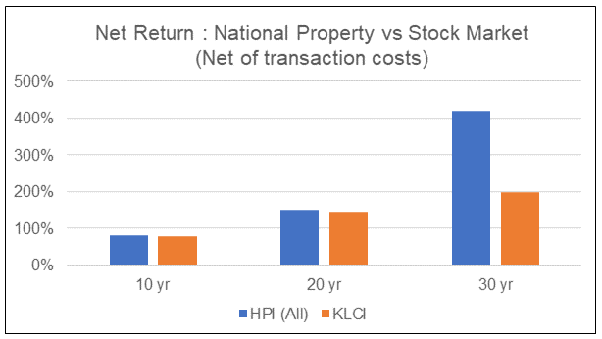
ECN is an acronym for Electronic Communication Network. It's a trading method that connects traders to liquidity providers on the financial markets. It allows them to trade on a computer and instantly matches orders, boosting execution speeds and providing tighter spreads.
ECN brokers offer online trading of stocks, currencies and commodities on a centralised stock market. These brokers will allow you to trade using any account balance.
ECNs are automated components of trading which connect individual traders to liquidity suppliers such as banks, brokers and other traders. The ecn allows traders to trade on financial markets without dealing tables and with any kind of trading account.
How does ECN function?
In an ecn, you can make trades using a dedicated computer terminal or via network protocols. The ecn automatically matches your buy or sell order with another subscriber who has the same price and share count as you do. It ensures your trade is completed quickly without the use of a deal-making table.

The electronic communication network (ECN) is a system which matches up buy and sell orders to the best possible bid and asking prices. It offers liquidity, allows for faster execution and reduces the risk of price manipulating.
A good ECN broker will offer competitive commissions, a secure trading environment and the opportunity to trade across multiple asset classes. These features allow you to maximize your profits.
What is ECN or electronic communication network market?
The ecn market allows you to buy or sell forex, stocks and other assets at the same price. The ecn offers a convenient way to gain access to global financial markets.
The best ECN for Forex is one that has a fast and reliable platform, offers the latest trading technology and offers tight spreads. It also provides a range of educational resources to assist you in your trading.
What is a STP ECN as opposed to a classical ECN?
Classic ECNs are ECNs that charge a small fee for all participants in their network. These include both liquidity providers and removers. These ECNs base their fees on the volume of transactions that are made through their networks.

What is an ECN's advantage over a conventional market maker?
An ECN differs from a traditional market maker in that it provides a transparent match between buyers and sellers, according to Fink. Fink argues that by doing so, the market maker and customer have no conflict of interests.
What are the most popular types of ECNs?
ECNs automatically match up buy and sale orders with the most competitive prices. It provides more liquidity than the standard market maker and is therefore often preferred by traders.
FAQ
How are Share Prices Set?
Investors set the share price because they want to earn a return on their investment. They want to make money from the company. They buy shares at a fixed price. Investors will earn more if the share prices rise. The investor loses money if the share prices fall.
An investor's main goal is to make the most money possible. This is why they invest in companies. They are able to make lots of cash.
What is the difference in the stock and securities markets?
The whole set of companies that trade shares on an exchange is called the securities market. This includes stocks, options, futures, and other financial instruments. There are two types of stock markets: primary and secondary. Stock markets that are primary include large exchanges like the NYSE and NASDAQ. Secondary stock markets allow investors to trade privately on smaller exchanges. These include OTC Bulletin Board (Over-the-Counter), Pink Sheets, and Nasdaq SmallCap Market.
Stock markets are important for their ability to allow individuals to purchase and sell shares of businesses. The value of shares depends on their price. A company issues new shares to the public whenever it goes public. Dividends are paid to investors who buy these shares. Dividends can be described as payments made by corporations to shareholders.
Stock markets are not only a place to buy and sell, but also serve as a tool of corporate governance. Shareholders elect boards of directors that oversee management. The boards ensure that managers are following ethical business practices. In the event that a board fails to carry out this function, government may intervene and replace the board.
Who can trade on the stock exchange?
The answer is yes. However, not everyone is equal in this world. Some have better skills and knowledge than others. They should be rewarded for what they do.
But other factors determine whether someone succeeds or fails in trading stocks. If you don’t know the basics of financial reporting, you will not be able to make decisions based on them.
You need to know how to read these reports. It is important to understand the meaning of each number. It is important to be able correctly interpret numbers.
If you do this, you'll be able to spot trends and patterns in the data. This will allow you to decide when to sell or buy shares.
You might even make some money if you are fortunate enough.
What is the working of the stock market?
By buying shares of stock, you're purchasing ownership rights in a part of the company. Shareholders have certain rights in the company. He/she is able to vote on major policy and resolutions. He/she has the right to demand payment for any damages done by the company. He/she can also sue the firm for breach of contract.
A company cannot issue any more shares than its total assets, minus liabilities. This is called "capital adequacy."
A company with a high capital adequacy ratio is considered safe. Companies with low capital adequacy ratios are considered risky investments.
Are bonds tradable?
Yes, they are. As shares, bonds can also be traded on exchanges. They have been trading on exchanges for years.
The only difference is that you can not buy a bond directly at an issuer. A broker must buy them for you.
This makes it easier to purchase bonds as there are fewer intermediaries. This means that you will have to find someone who is willing to buy your bond.
There are many types of bonds. Some bonds pay interest at regular intervals and others do not.
Some pay quarterly interest, while others pay annual interest. These differences make it possible to compare bonds.
Bonds are very useful when investing money. For example, if you invest PS10,000 in a savings account, you would earn 0.75% interest per year. If you invested this same amount in a 10-year government bond, you would receive 12.5% interest per year.
If all of these investments were put into a portfolio, the total return would be greater if the bond investment was used.
Statistics
- For instance, an individual or entity that owns 100,000 shares of a company with one million outstanding shares would have a 10% ownership stake. (investopedia.com)
- Our focus on Main Street investors reflects the fact that American households own $38 trillion worth of equities, more than 59 percent of the U.S. equity market either directly or indirectly through mutual funds, retirement accounts, and other investments. (sec.gov)
- Even if you find talent for trading stocks, allocating more than 10% of your portfolio to an individual stock can expose your savings to too much volatility. (nerdwallet.com)
- Individuals with very limited financial experience are either terrified by horror stories of average investors losing 50% of their portfolio value or are beguiled by "hot tips" that bear the promise of huge rewards but seldom pay off. (investopedia.com)
External Links
How To
How to Invest in Stock Market Online
Stock investing is one way to make money on the stock market. There are many ways you can invest in stock markets, including mutual funds and exchange-traded fonds (ETFs), as well as hedge funds. The best investment strategy depends on your investment goals, risk tolerance, personal investment style, overall market knowledge, and financial goals.
To become successful in the stock market, you must first understand how the market works. This includes understanding the different investment options, their risks and the potential benefits. Once you know what you want out of your investment portfolio, then you can start looking at which type of investment would work best for you.
There are three types of investments available: equity, fixed-income, and options. Equity is the ownership of shares in companies. Fixed income means debt instruments like bonds and treasury bills. Alternatives are commodities, real estate, private capital, and venture capital. Each option has its pros and cons so you can decide which one suits you best.
You have two options once you decide what type of investment is right for you. The first strategy is "buy and hold," where you purchase some security but you don't have to sell it until you are either retired or dead. Diversification, on the other hand, involves diversifying your portfolio by buying securities of different classes. For example, if you bought 10% of Apple, Microsoft, and General Motors, you would diversify into three industries. The best way to get exposure to all sectors of an economy is by purchasing multiple investments. This helps you to avoid losses in one industry because you still have something in another.
Another important aspect of investing is risk management. Risk management will allow you to manage volatility in the portfolio. A low-risk fund could be a good option if you are willing to accept a 1% chance. On the other hand, if you were willing to accept a 5% risk, you could choose a higher-risk fund.
The final step in becoming a successful investor is learning how to manage your money. Planning for the future is key to managing your money. You should have a plan that covers your long-term and short-term goals as well as your retirement planning. You must stick to your plan. Don't get distracted by day-to-day fluctuations in the market. Your wealth will grow if you stick to your plan.